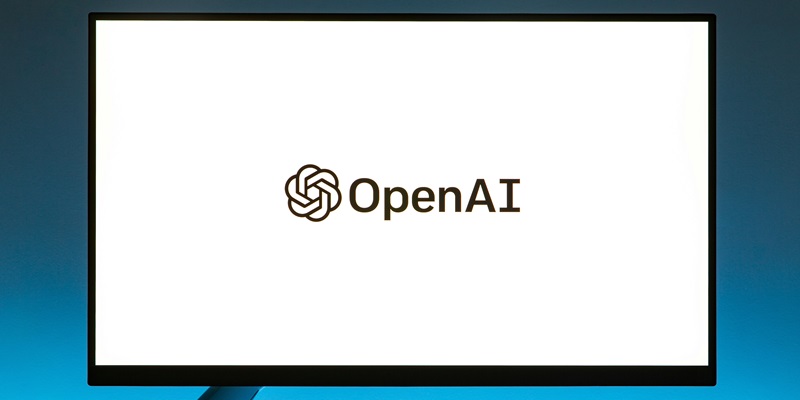Recent years have witnessed a seismic shift in the technology landscape, largely driven by advances in artificial intelligence. ChatGPT, a product of OpenAI, exemplifies these gains through its advanced language comprehension abilities, which have transformed customer service and content creation sectors. The collaboration between OpenAI and Microsoft’s Azure has further democratized access to these powerful AI tools, making cutting-edge technology available at scale to various industries.
Revolutionizing Customer Service and Content Creation
Advanced Language Comprehension and Automation
In today’s fast-paced digital world, customer service remains a pivotal aspect of any business’s operations. However, traditional customer service methods, often reliant on human agents, can be resource-intensive and inefficient. OpenAI’s ChatGPT steps in by offering a formidable alternative. This AI tool is capable of understanding and generating human-like text, providing real-time assistance to customers while significantly reducing wait times and operational costs.
Moreover, ChatGPT is not just limited to customer service. Content creation across mediums has been revolutionized due to its capabilities. By employing advanced natural language processing techniques, ChatGPT can generate high-quality written material effortlessly. This allows businesses to maintain consistent content output without the need for extensive human intervention. As a result, companies can focus on strategic planning and creative endeavors while leaving routine content generation tasks to AI.
Personalized Learning and Educational Advancements
OpenAI’s mission to democratize artificial general intelligence has also extended its reach to the education sector. AI models, especially ChatGPT, offer unprecedented levels of personalized learning experiences. These AI-driven tools can tailor educational content to match individual learning paces and styles, thereby enhancing both engagement and comprehension. For instance, students struggling with specific subjects can receive customized assistance that directly addresses their weaknesses, leading to more effective learning outcomes.
Additionally, AI has significantly improved accessibility for disabled students. Tools like real-time transcription and document simplification ensure that educational material is accessible to all, including those with hearing or visual impairments. By breaking down these barriers, AI is fostering a more inclusive educational environment and empowering every student to reach their full potential. Despite these advancements, discussions surrounding data privacy and ethical use persist, highlighting the need for robust AI regulation in education.
Azure OpenAI: Expanding AI Access and Capabilities
Democratizing AI Through Strategic Partnerships
Azure OpenAI, born from a strategic alliance between OpenAI and Microsoft, represents a significant milestone in the accessibility and scalability of artificial intelligence. By leveraging Microsoft’s Azure cloud platform, businesses gain seamless access to OpenAI’s powerful AI models without the need to develop their own infrastructure. This collaboration ensures that even smaller enterprises can benefit from AI solutions, thus leveling the playing field in the tech industry.
This partnership has significant implications across various industries. Companies can now leverage Azure OpenAI to enhance customer experiences, improve operational efficiencies, and drive innovation. For example, financial institutions can use AI to automate data analysis and fraud detection, while healthcare providers can enhance patient care through AI-driven diagnostics and treatment plans. The versatility of these AI solutions underscores their potential to transform business operations on a global scale.
Addressing Ethical and Privacy Concerns
While the integration of AI presents various opportunities, it also brings forward challenges related to ethics and data privacy. As AI systems become more ingrained in everyday operations, the need for stringent data protection measures becomes increasingly crucial. Concerns regarding how data is collected, stored, and used by these AI tools are at the forefront of discussions among tech experts and policymakers. Ensuring that AI technologies operate within ethical frameworks is essential to gaining public trust and maximizing their benefits.
Moreover, the societal impact of AI cannot be overlooked. Critics argue that widespread adoption of AI might lead to job displacement. While this is a valid concern, it’s essential to consider that AI also creates new job opportunities, particularly in tech and data sciences. As industries continue to evolve, there’s a growing need for regulations that address these complexities, ensuring responsible AI usage while balancing innovation with ethical considerations.
Future Implications and Considerations
In recent years, the technology landscape has undergone a dramatic transformation, primarily fueled by advancements in artificial intelligence (AI). A prime example of these advancements is ChatGPT, a product developed by OpenAI. ChatGPT showcases remarkable language comprehension abilities, which have revolutionized sectors such as customer service and content creation. This AI tool can understand and generate human-like text, making interactions more efficient and personalized.
Additionally, the partnership between OpenAI and Microsoft Azure has played a crucial role in democratizing access to these powerful AI technologies. By leveraging Azure’s cloud infrastructure, OpenAI has made its state-of-the-art AI tools available at scale, enabling various industries to harness cutting-edge technology. This collaboration has lowered barriers to entry, allowing more organizations to integrate advanced AI into their operations. The combined efforts of OpenAI and Microsoft have thus expanded the reach of AI, fostering innovation and efficiency across different sectors.

